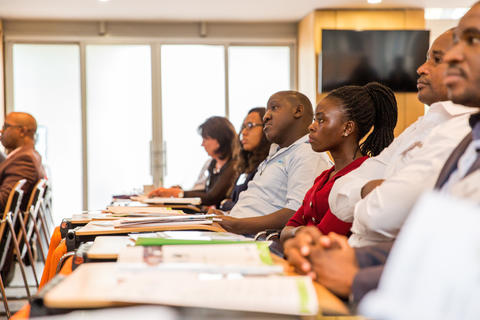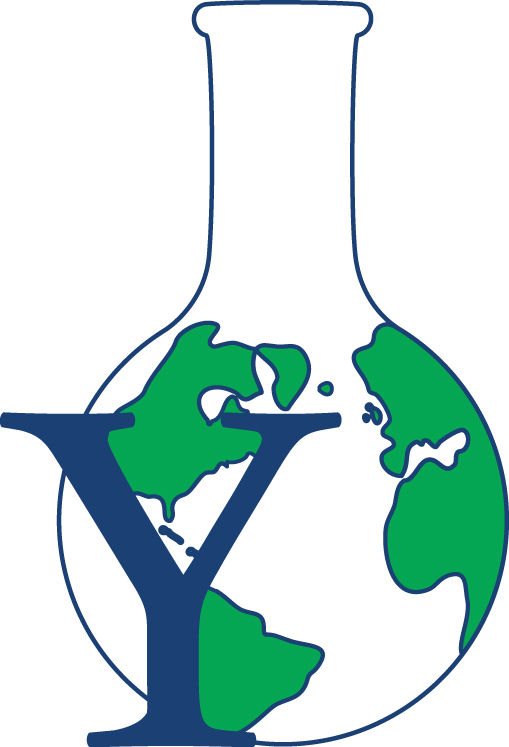
The Global Green Chemistry Initiative has recently achieved a significant milestone. The project team has just completed a series of Awareness Raising Workshops in countries with developing economies or economies in transition. In total, 5 workshops and a Green Day event were completed since the Project Inception Workshop in Rio de Janeiro in February 2017.
Background: The United Nations Industrial Development Organization (UNIDO) in partnership with the Center for Green Chemistry and Green Engineering at Yale University are leading a Global Green Chemistry Initiative [GGCI]. The Initiative aims to increase the global awareness and capacities on deployable Green Chemistry approaches for the design of products and processes that advance global environmental benefits throughout their life cycles. The Initiative has many partners, organizations and governments from around the world, including National Cleaner Production Centers [NCPCs] from Brazil, Colombia, Egypt, Peru, Serbia, South Africa, and Sri Lanka.
The GGCI project is a funded by the Global Environment Facility and was developed in response to the increasing variety and complexity of chemicals and the need to make chemical products safer and their manufacturing processes less polluting. One approach to advance sustainable development is Green Chemistry, which can be defined as the “design of chemical products and processes that reduce or eliminate the use and generation of hazardous substances.” While Green Chemistry has touched virtually all sectors of society and industry ranging from agriculture to energy to building materials to cleaners, these accomplishments have taken place largely in the industrialized nations of the world. There are only nascent efforts to advance green chemistry in a small number of developing countries and economies in transition with the lack of awareness of green chemistry and its potential as the single largest barrier to broad-based adoption. Consequently, a major goal of the GGCI is to raise awareness of Green Chemistry in such a way that it can effectively contribute to the achievement of the Sustainable Development Goals adopted by the United Nations in 2015.
Awareness Raising Workshops. The Workshops were hosted by partner NCPCs in Serbia, Colombia (with representation from Peru), Sri Lanka, Egypt, and South Africa and averaged over 100 participants from diverse backgrounds including industry, academia, non-profit organizations, and government.
Workshop presentations introduced the field of Green Chemistry to participants, and segments focused on the role of chemicals in our world, the Twelve Principles of Green Chemistry, and areas of current Green Chemistry research. There was also a “Partner’s Local Content” segment that featured country specific efforts to implement green chemistry solutions and technologies. In addition to training of the practitioners, the workshops strengthened the green chemistry network and facilitated NCPCs to become regional hubs for disseminating green chemistry nationally. The workshops were led by a network of invited international Green Chemistry experts: Professor Adelina Voutchkova-Kostal from George Washington University, Professor Peter Licence from University of Nottingham, Professor Philip Jessop from Queens University, Mr. Nitesh Mehta from the Green ChemisTree Foundation, and Professors Paul Anastas and Julie Zimmerman from Yale University.
The feedback from Center surveys indicated that the workshops were successful in providing content and engaging the audience. Over 90% of workshop participants rated workshops as excellent and inspiring, and the majority appreciated the numerous examples of green chemistry technologies that were highlighted.
“We are very pleased with the success of the Awareness Raising Workshops and happy to have completed this phase of the Initiative. The success was a result of the superb efforts of our partnering NCPCs and our international Green Chemistry experts. Critically, the enthusiasm and engagement of workshop participants was notable. We look forward to the next phase of our Initiative, and to continue our mission to raise global awareness of the potential of Green Chemistry to advance sustainable development,” said Professor Paul Anastas, Program Lead and co-creator of the Global Green Chemistry Initiative.
Train-the-Facilitator Workshops. The Awareness Raising Workshops will be followed by five-day training workshops that will provide hands-on tools and materials to assist with the design of products and processes that advance global sustainability. The Train-the-Facilitator Workshops will be held in late 2018 and early 2019.
